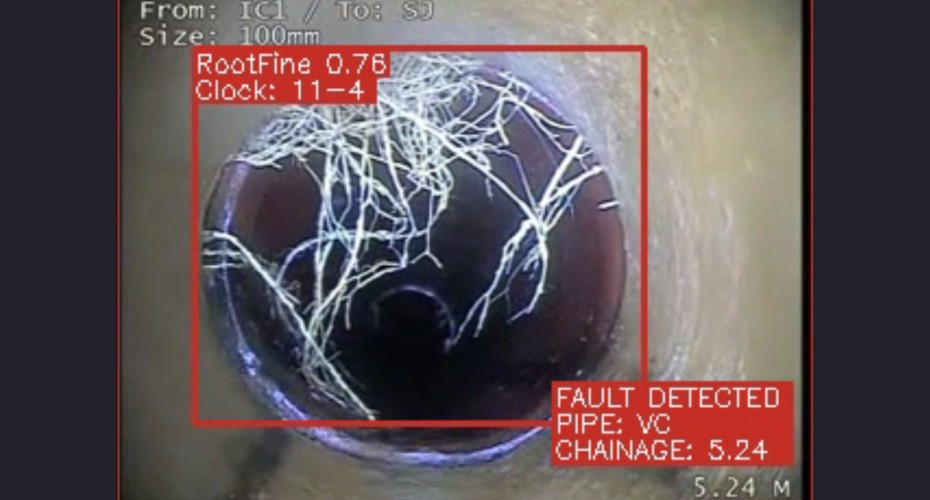Researchers develop AI to help South West Water detect pipeline problems

AI analyses footage from South West Water's sewer cameras
The University of Exeter is working with South West Water to explore the power of artificial intelligence (AI) to help tackle pipe blockages and pollution.
Across the region, around twelve thousand smart sensors are used as sewer level monitors, like ‘pairs of eyes’, constantly collecting data such as changes in flow patterns. They are installed in manholes on the sewer network and monitor early signs of blockages that could cause pollution in the watercourses or flooding on land or in properties.
Richard Price, South West Water’s Director for Waste Water Services said: “The AI acts like a digital detective. It learns what ‘normal’ looks like for each part of the network and spots when something’s wrong even before a human could notice. This means teams can be sent out to the exact location of a suspected blockage, often before customers are even aware of an issue.”
Faster detection
In addition to the Sewer Level Monitors, South West Water also use high-definition cameras to look inside sewer pipes and spot issues like cracks, blockages, and root intrusions.
Partners at the University of Exeter use this information to develop artificial intelligence (AI) tools, which will help South West Water detect problems earlier and respond more quickly.
Richard Everson, Professor of Machine Learning at the University of Exeter, who is working in partnership with South West Water said: “It’s fantastic to see new research from the University of Exeter on modern AI processing coming into practical use for inspecting underground waste water pipes. By using these technologies together, there’s great potential to make wastewater networks smarter and more resilient.”
Prevention instead of cure
These AI trials are helping South West Water understand how it can move towards greater prevention rather than cure. This not only protects the environment from pollution incidents, it also has the potential to save money on costly repairs which is better for customers.
Fats, oils, and grease (often referred to as FOG), along with items like wet wipes, cotton buds, and sanitary products, are frequently disposed of down sinks and toilets by the public. These materials do not break down easily and can congeal or snag inside sewer pipes, forming stubborn blockages. Over time, these obstructions reduce the capacity of the pipes and increase the risk of overflows, especially during heavy rainfall. Preventing these items from entering the sewer system is one of the simplest and most effective ways the public can help protect the environment and reduce pollution incidents.
“This project is a great example of what can happen when experts from different fields come together” said Josh Myrans, Data Scientist at South West Water who’s leading the project since coming up with the idea as part of his PHD, ten years ago. “With support from UK Research & Innovation, and in partnership with the University of Exeter, iTouch Systems, and the Water Research Centre, we’re using advanced AI alongside decades of engineering knowledge to tackle a huge challenge. By improving how sewer surveys are done, we’re helping deliver faster, more accurate results.”
Future proofing
South West Water is continuing to explore more opportunities to use AI in its operations. For example, it is also in the early stages of piloting Smart AI Cameras at Sewage Treatment Works. This technology uses machine learning to detect anomalies or changes. The AI-powered analytics can identify issues such as flooding or faults.



